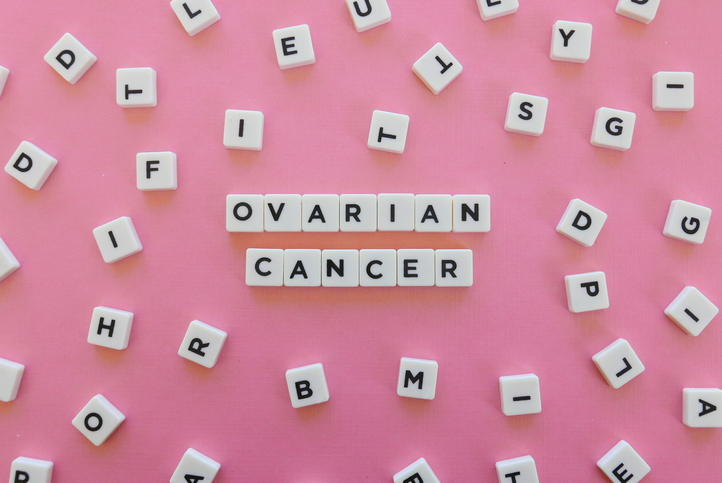Journalist Christiane Amanpour Has Ovarian Cancer. 5 Things Everyone Should Know About This Cancer.

By Joy Stephenson-Laws, J.D., Founder
Chief International Anchor for CNN Christiane Amanpour recently and bravely shared with the world that she is battling ovarian cancer.
"I've had successful major surgery to remove it, and I'm now undergoing several months of chemotherapy for the very best possible long-term prognosis, and I'm confident," she said, according to this CNN report.
"I'm telling you this in the interest of transparency but in truth really mostly as a shoutout to early diagnosis."
Christiane is 63-years-old. According to the American Cancer Society, ovarian cancer is mainly found in older women, particularly women who are 63 years of age or older.
“Ovarian cancer ranks fifth in cancer deaths among women, accounting for more deaths than any other cancer of the female reproductive system. A woman's risk of getting ovarian cancer during her lifetime is about 1 in 78. Her lifetime chance of dying from ovarian cancer is about 1 in 108,” the Society reports.
To give a bit more perspective, the Society also reports their 2021 predictions for ovarian cancer rates and deaths in the United states:
- About 21,410 women will receive a new diagnosis of ovarian cancer.
- About 13,770 women will die from ovarian cancer.

From what I gather from researching this specific type of cancer, ovarian cancer causes the most deaths out of any cancers of the female reproductive system because it is what I would call a tricky cancer. Here are five key factors everyone should know:
- Vague, sometimes nonexistent symptoms.
“Early ovarian cancer causes minimal, nonspecific, or no symptoms. The patient may feel an abdominal mass. Most cases are diagnosed in an advanced stage,” reports Medscape.
Some possible symptoms of ovarian cancer include vaginal bleeding or abnormal discharge (this is one to really pay attention to you if you have already gone through menopause), pain or pressure in the pelvic area, abdominal or back pain, bloating, trouble eating (including feeling full too quickly), constipation and more frequent urination.
As you can probably imagine, many women may mistake some of these symptoms for “that time of the month,” stress, aging or other issues.
- Less specific screening tests.
Pap smears help detect cervical cancer. Mammograms detect breast cancer. These screenings are also usually considered routine components of a woman’s medical exam (depending on her age and history). On the other hand, early screening for ovarian cancer is not as straightforward, routine and readily available.
“There has been a lot of research to develop a screening test for ovarian cancer, but there hasn’t been much success so far. The 2 tests used most often (in addition to a complete pelvic exam) to screen for ovarian cancer are transvaginal ultrasound (TVUS) and the CA-125 blood test,” reports the American Cancer Society.
The blood test measures the amount of a protein (called CA-125). Women with ovarian cancer often have high levels of this protein.
One professor with the University of New England is working on a diagnostic test for early ovarian cancer screening. It is a pinprick test that only requires a drop of blood and can be mailed to a lab.
- Not only found in older women.
I do not want people to have the misconception that ovarian cancer is only found in older women. Actress Cobie Smulders was diagnosed with ovarian cancer at just 25-years-old. Another woman named Hannah Pyper experienced ovarian cancer symptoms, including a growing lump in her abdomen, intense pain and more frequent urination, at the age of 26. Her doctors thought the lump was a fibroid, and it was not until she went in for surgery that they discovered it was stage 3 ovarian cancer. I highly recommend watching this video about Hannah’s story.
(Ovarian cancer is more common in white women than black women).
- Second opinions can be life-saving.
Another young woman who is African American saved her life by getting a second opinion. When she was just 24, reality star Brandi Maxiell was diagnosed with ovarian cancer.
“I had all the classic symptoms of ovarian cancer – back pain, bloating, weight gain, abdominal pain, feeling full quickly after eating a couple of bites of food as well as the need to urinate urgently or often. Now, what woman doesn’t have one or more of these symptoms during a regular menstrual cycle? That’s why ovarian cancer is called “the silent killer.” It creeps into your body with symptoms so subtle that it can mimic other, unrelated conditions,” she said, in one report.
It was not until she went to a second doctor that she was diagnosed. Brandi is now 38-years-old and is a mother to one son.
- Knowing your body and listening to it can also be life-saving.
In some ways, you are your biggest “doctor.” No one can physically be you or feel your symptoms, which is why it is so key to speak up even if your actual medical doctor tells you “it’s nothing.”
“But I know my body. I knew something was wrong. I was gaining weight, but I knew I wasn’t pregnant. And I could feel knots poking through my body. Listening to my instincts, I decided to go for a second opinion,” Brandi also said when discussing her experience with ovarian cancer.
Be proactive.Learn your family history with this type of cancer. If you have a history of ovarian cancer in your family, know that you are at a higher risk. It is also important to note that you have an increased risk of ovarian cancer if you have had breast cancer.
As always, lifestyle is key in the prevention and management of cancer. Always be sure to eat healthily, exercise regularly, avoid smoking, drink alcohol in moderation (if at all) and identify any nutrient imbalances or deficiencies by taking routine nutrient tests.
For additional information on ovarian cancer risk and what you can do, check out this pH Labs blog.
Enjoy your healthy life!
Disclaimer: This article is not intended to provide medical advice. Please consult with your doctor or another competent healthcare practitioner to get specific medical advice for your situation.
The pH professional health care team includes recognized experts from a variety of health care and related disciplines, including physicians, attorneys, nutritionists, nurses and certified fitness instructors. This team also includes the members of the pH Medical Advisory Board, which constantly monitors all pH programs, products and services. To learn more about the pH Medical Advisory Board, click here.







